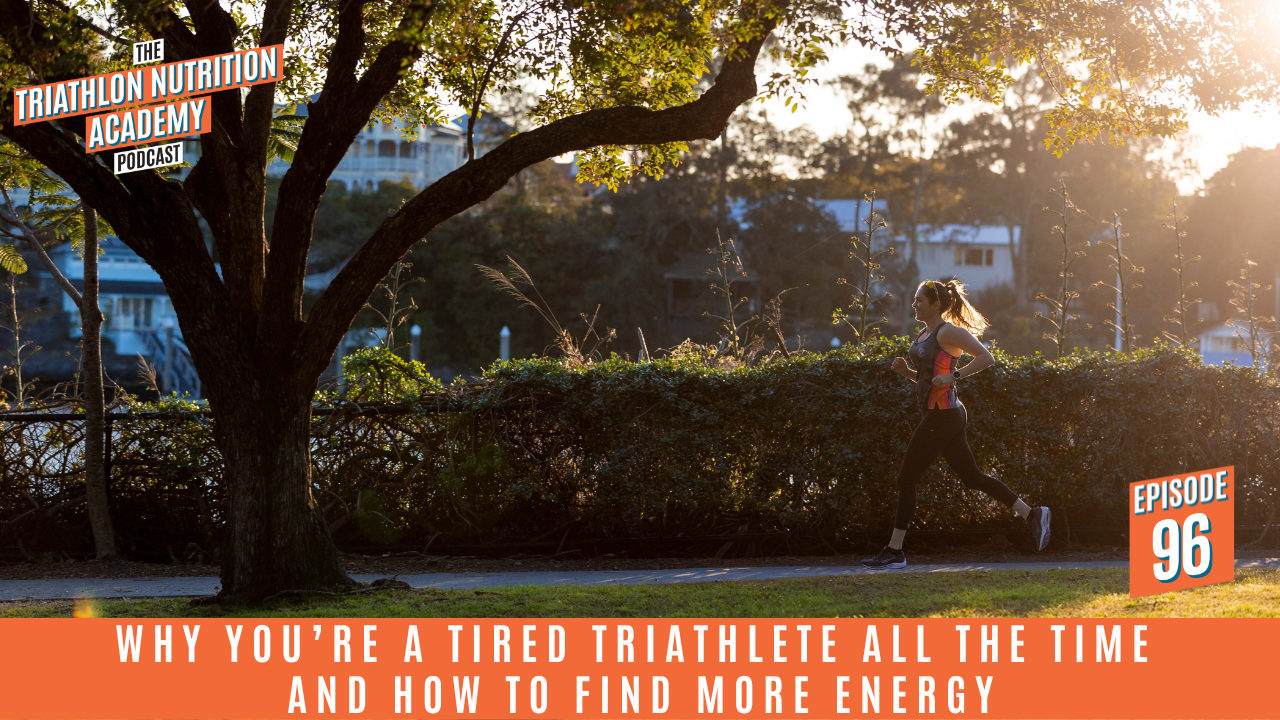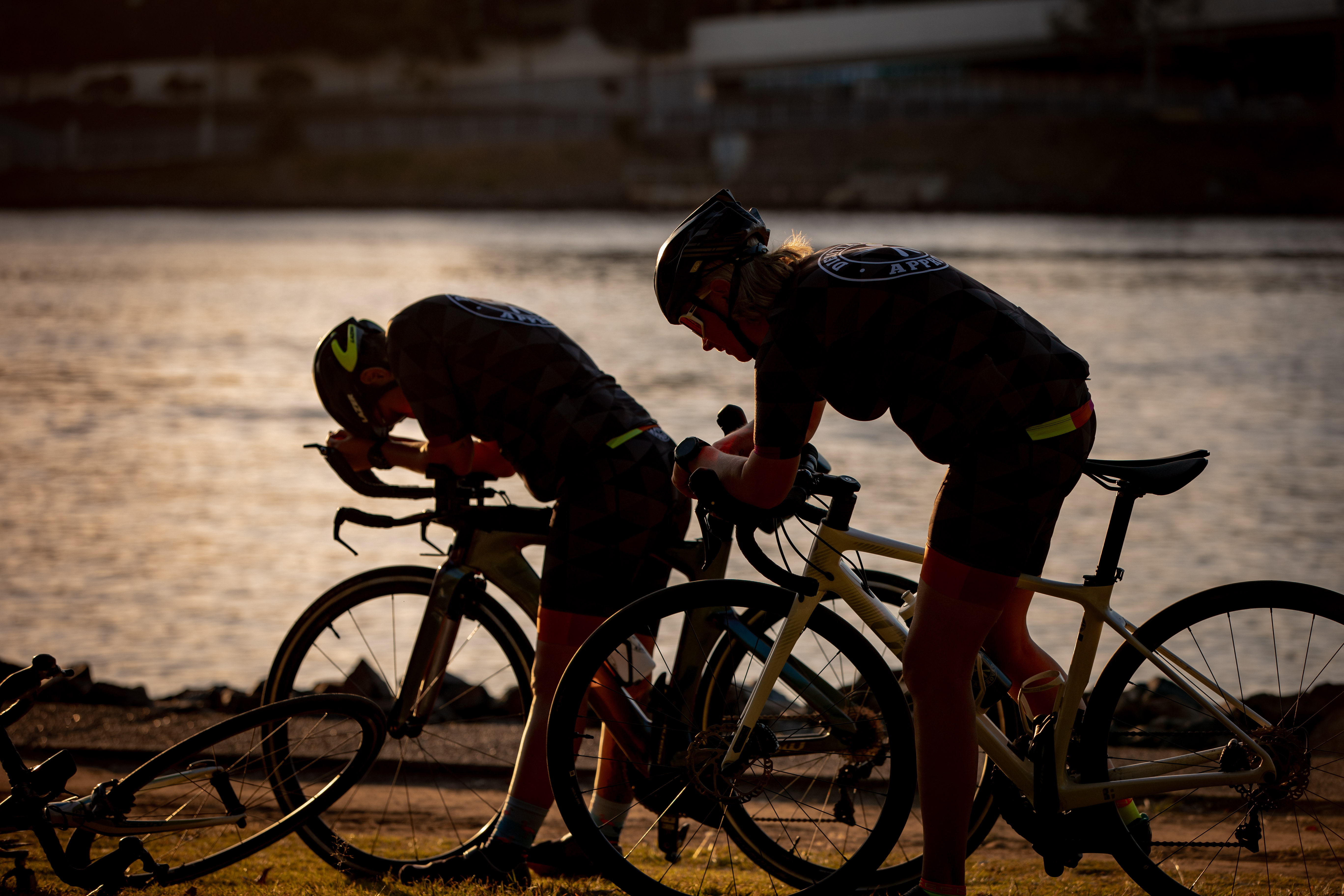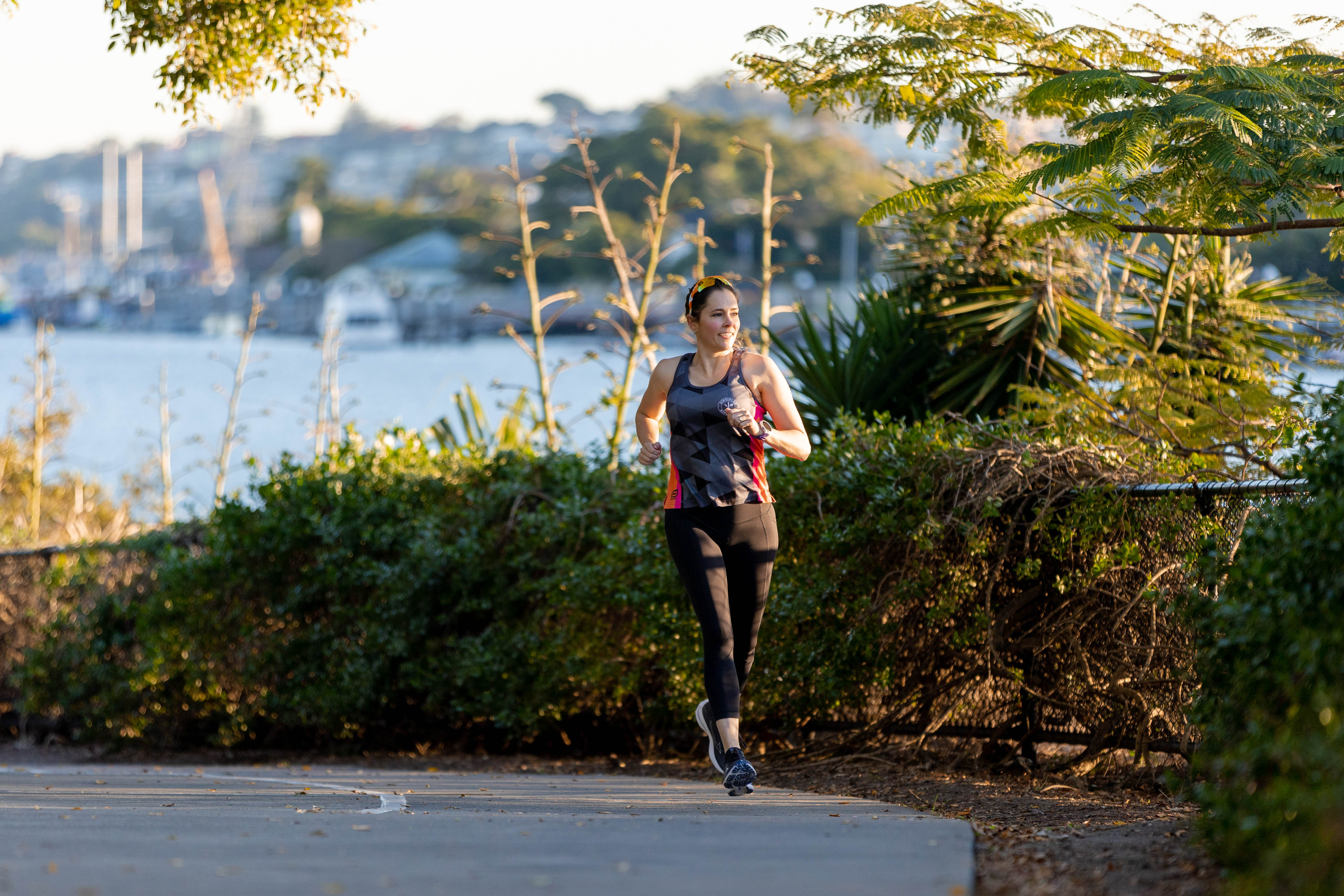
Why You’re a Tired Triathlete All the Time and How to Find More Energy
Jun 01, 2023Do you feel tired and fatigued constantly as a triathlete?
Of course you do - you’re training for three sports! But you shouldn't be completely wiped out all the time.
Let’s explore the common reasons of constant tiredness and fatigue experienced by many triathletes. Specifically, we'll discuss why you're feeling tired all the time and, more importantly, how to find that much-needed energy boost to power through your training sessions.

Understanding Normal Tiredness
While feeling tired due to triathlon training is expected due to the physical demands of three sports, it is important to recognise when exhaustion goes beyond normal limits.
Pushing yourself to the point of complete exhaustion is not sustainable or healthy. You should not be completely wiped out all the time, even during full distance or Ironman training.
By evaluating your current state of tiredness, you can realise that feeling constantly drained is not normal or necessary for triathlon success.
Recognising Red Flags
Several signs indicate that you might be overexerting yourself as a tired triathlete. It’s important to recognise these in yourself so you can fix them!
- If you find that after long training sessions, your entire day is wasted as you struggle to function, it's a clear red flag.
- Similarly, waking up each morning feeling lethargic and lacking energy is another indicator that something is amiss.
- If you constantly struggle to complete long endurance sessions or experience excessive hunger on rest days, your nutrition isn’t supporting your training.
- Frequent illnesses or recurring injuries can also point to excessive fatigue.
Prioritising Recovery and Rest
Recovery is a crucial aspect of triathlon training that is often overlooked!
By prioritising rest days, lighter training weeks, the right nutrition, and adequate sleep, you give your body the opportunity to repair, recharge, and adapt. Quality sleep is essential for recovery, and getting seven to nine hours of sleep per night is recommended.
Neglecting recovery can lead to increased fatigue, decreased performance, and even injuries.
Remember, consistency in training is key, and recovery is just as important as active training sessions.
Balancing Training and Nutrition
Proper nutrition plays a pivotal role in maintaining energy levels and enhancing performance. By understanding how to eat for the demands of your training, you can ensure that you fuel your body effectively.
Periodising your nutrition plan to align with your training intensity and duration is essential.
Whether it's recovery nutrition after training or meeting the energy demands of high-intensity days, strategic meal planning can optimise your training adaptations.

Practical Tips to Find More Energy
To find more energy and break free from the tired triathlete cycle, consider the following tips:
- Prioritise recovery nutrition: Start your recovery process early, focusing on hitting your specific recovery targets and ticking the right boxes
- Tailor your nutrition to training demands: Understand how to eat for different types of training days and adjust your fuelling accordingly.
- Embrace rest and recovery: Allow for rest days, lighter training weeks, and adequate sleep to support your body's recovery and adaptation process. Remember we only adapt from the sessions we recover from, so if you want to get the best bang for your buck out of your training program, you need to prioritise your recovery.
- Recognise signs of overtraining: Be mindful of the symptoms of overtraining and adjust your training load accordingly to prevent burnout and injuries. Chat with your coach who can help you here.
- Implement a periodised training approach: Vary the intensity of your training while maintaining a balance between pushing your limits and allowing for proper recovery. Again, your coach is your best point of contact for all things training.
- Seek professional guidance: Consider consulting with a triathlon specific sports dietitian and a good coach to develop your personalised nutrition and training plan tailored to your specific needs.

Take Home Message
Feeling constantly tired and fatigued as a triathlete is not normal or necessary for success. By prioritising recovery, balancing training and nutrition, and implementing practical strategies, you can break free from the tired triathlete cycle and find more energy to unlock your true potential.
I hope you've got some valuable insights into why you may be feeling tired all the time and are equipped with some ideas to reclaim your energy levels. Remember, you are an endurance athlete, not a sprinter, and finding the right balance between training and recovery is key.
Fatigue is not a sign of weakness; it's a sign that you're pushing your body to its limits – successful athletes are ones that absorb the demands of training, without breaking or getting sick all the time\Be kind to yourself. This is an amazing sport, don’t forget you also juggle a lot of other balls in life like work and family. You are not a professional triathlete who gets paid to train.
And always remember, what works for one athlete may not work for another – so focus on yourself and your journey. Listen to your body – it’s really smart.
To dive deeper, listen to the Triathlon Nutrition Academy Podcast, EP 96 - Why You’re a Tired Triathlete All the Time and How to Find More Energy
If you are interested in learning more about the Triathlon Nutrition Academy Program and what it can do for you, head HERE to join the waitlist for our next opening.
Don't miss a beat!
New moves, motivation, and classes delivered to your inbox.
We hate SPAM. We will never sell your information, for any reason.



